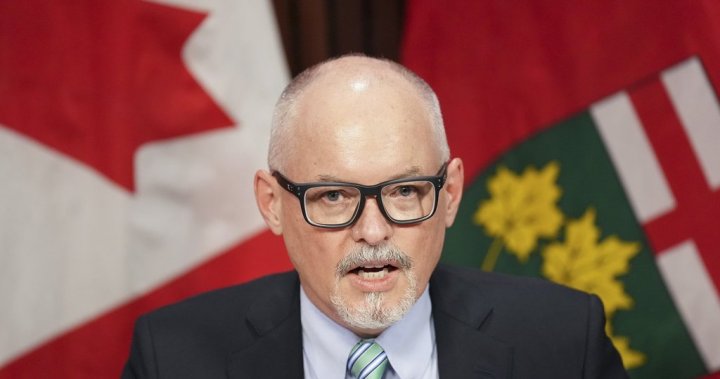As the morning light slants through the windows of Toronto’s Hospital for Sick Children, Dr. Kathryn Stephenson walks me through the isolation ward with measured steps. Six new cribs have been added this week alone. Inside each, an infant under 12 months old struggles against a disease that, until recently, had been considered effectively eliminated in Canada.
“These babies are too young to have received their MMR vaccine,” Dr. Stephenson explains, her voice softening as we pause by a crib where a mother gently strokes her 8-month-old’s forehead. The child’s skin is covered in the telltale rash of measles – an angry constellation of red dots spreading across his tiny body. “They’re relying on the rest of us for protection.”
Ontario is facing its worst measles outbreak in decades, with six new infant cases confirmed yesterday, bringing the provincial total to 24 cases since March. What makes this outbreak particularly alarming is that 18 of those infected are babies under one year of age – too young to have received their first scheduled measles vaccination.
I met with Anita Patel in the hospital cafeteria. Her 10-month-old daughter Priya is among those infected. “I was so careful,” she tells me, exhaustion evident in the dark circles beneath her eyes. “We barely went anywhere. But my neighbor’s child came down with it first, and their vaccination had been delayed.” Three days later, Priya developed a high fever, followed by the characteristic rash.
The resurgence of measles reflects a troubling trend across North America. According to Public Health Ontario data, vaccination rates for the MMR (measles, mumps, rubella) vaccine have dropped from 91.9% in 2019 to 85.3% in 2023. Public health experts warn that the 95% threshold needed for “herd immunity” – the level that protects vulnerable individuals like infants – is no longer being met in many communities.
“What we’re seeing now is the direct consequence of vaccination hesitancy that gained momentum during the pandemic,” explains Dr. Maya Fulton, infectious disease specialist at McMaster University. “The spread of misinformation through social media and declining trust in public health institutions has created pockets of vulnerability throughout the province.”
The Ontario Ministry of Health has responded by opening emergency vaccination clinics in affected communities and launching a public awareness campaign. Health Minister Sylvia Jones emphasized at a press conference last week that “measles is not just a childhood rash – it can cause pneumonia, encephalitis, and even death, particularly in infants and those with compromised immune systems.”
Walking through Leslieville, an east Toronto neighborhood where several cases have been reported, I notice posters in shop windows advertising a free vaccination clinic at the community center. Inside, public health nurses administer shots to a steady stream of parents with toddlers and school-aged children.
Rachel Wilson brought her 3-year-old son after hearing about the outbreak. “I had been putting it off,” she admits. “After COVID, I just needed a break from medical decisions. But when I heard babies were being hospitalized, I realized I couldn’t justify the delay anymore.”
The World Health Organization reported a 79% increase in measles cases globally in 2023, with over 300,000 cases reported worldwide. Canada’s national immunization strategy coordinator, Dr. Thomas Henning, says Ontario’s outbreak reflects this global trend. “We’re seeing what happens when vaccination rates drop below critical thresholds. The virus doesn’t need a passport to travel, and in our interconnected world, outbreaks anywhere can quickly become outbreaks everywhere.”
For families of affected infants, the policy debates feel distant compared to their immediate reality. In a quiet moment outside the hospital, I speak with Michael Chen, whose 7-month-old daughter was admitted three days ago. “The hardest part is the helplessness,” he says, showing me photos of his daughter before the illness – chubby-cheeked and smiling. “She’s in pain, and there’s no treatment except supportive care. We just have to wait it out.”
Dr. Stephenson emphasizes that while most children will recover, measles can have serious complications. “About one in five children with measles will develop complications like ear infections or diarrhea. One in 20 develops pneumonia. And about one in 1,000 will develop encephalitis, which can lead to permanent brain damage.”
Community health workers are now conducting targeted outreach in neighborhoods with low vaccination rates. At a community forum in Brampton last night, I watched as medical professionals answered questions from concerned parents, many expressing confusion about vaccination schedules that had been disrupted during pandemic lockdowns.
“We need to rebuild trust,” says community health nurse Preethi Sharma. “Not through judgment or fear, but through honest conversation and making vaccines accessible to everyone.” She points out that many families still face practical barriers – work schedules, transportation issues, language barriers – that make staying current with vaccinations challenging.
As Ontario grapples with this outbreak, the affected infants serve as a powerful reminder of what’s at stake in public health decisions. Dr. Fulton puts it plainly: “When we choose not to vaccinate our eligible children, we’re not just making a choice for our family. We’re making a choice that affects the most vulnerable among us – including babies who are too young to be protected any other way.”
Back at SickKids Hospital, I watch as a father gently rocks his infant son, singing softly in his ear. The child’s rash is beginning to fade – a sign that recovery is underway. It’s a moment of hope in the midst of an outbreak that has shaken Ontario’s sense of security against diseases once thought nearly vanquished.
For now, public health officials continue their urgent messaging: check your family’s vaccination status, keep infants away from crowded places during the outbreak, and recognize that when it comes to infectious diseases, our health decisions are inevitably interconnected.






